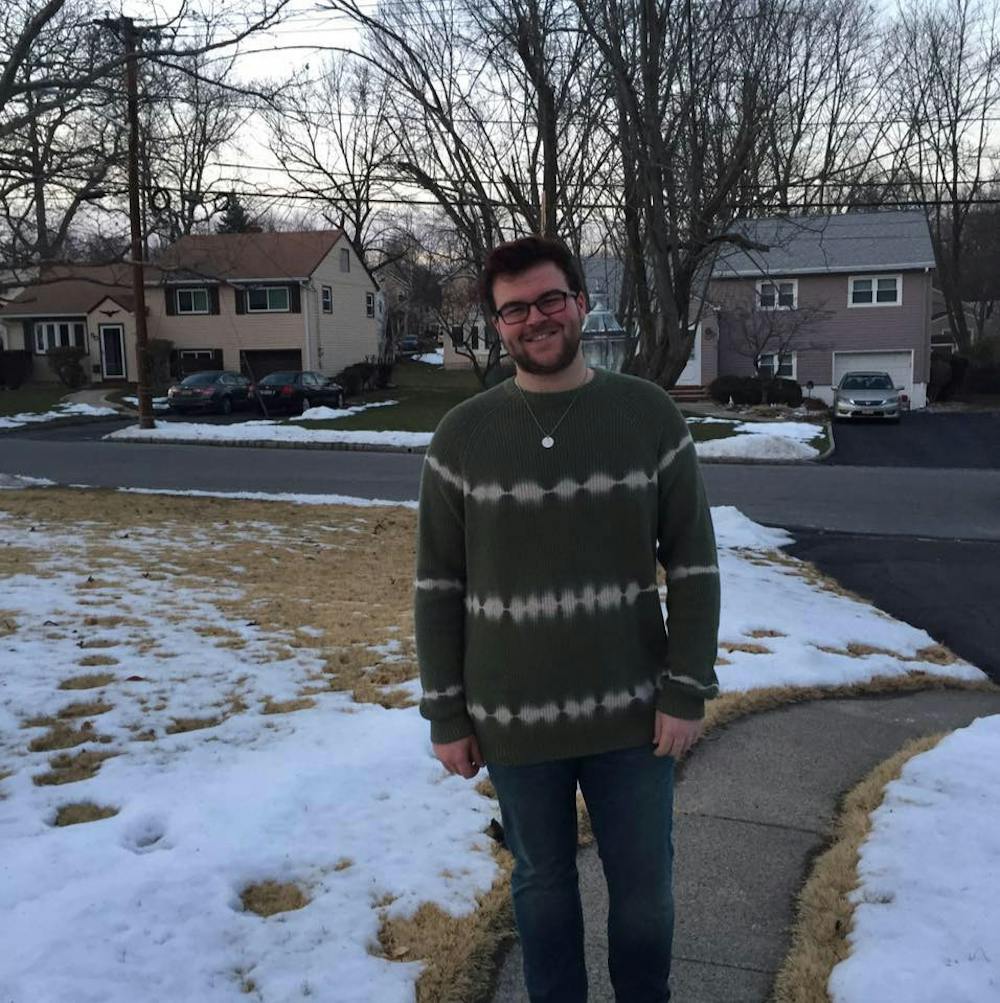When students are handed a Scantron to fill out during an exam, the reason they do poorly is often due to not studying. For Kyle Dailey, a senior social and behavior sciences major, it is because of dyslexia.
As a child, Dailey couldn’t understand why he was making so many mistakes, whether it was mixing up the letters on the Scantron or not being able to distinguish right from left. However, now in his final year at Seton Hall, Dailey doesn’t let dyslexia control his everyday life.
[caption id="attachment_20614" align="aligncenter" width="956"] Kyle Dailey does not let the stigma of dyslexia affect him.
Kyle Dailey does not let the stigma of dyslexia affect him.
Photo via Facebook/Kyle Dailey[/caption]
Dyslexia is a neurological disorder that makes it more difficult for students to read or write. People with dyslexia often learn to read later than most. Yet, according to Dailey, the disability affects everyone differently.
“Dyslexia is a very fluid disability,” he said. “No two people with the disability are alike.”
Dailey learned he had dyslexia in elementary school. It came as no surprise to his family given that his mother has the same learning disability. His mother knew early on that Dailey was going to be dyslexic, which prompted them to fight the school district in Livingston, N.J.
to have him tested for dyslexia.
“At the beginning, my school was apprehensive of giving me any form of help because of the costs,” Dailey said. “They claimed that I was fine and I was just slow.”
When it came time for college, Dailey described his transition to Seton Hall as being much smoother. Dailey is an inter-chapter chair in Alpha Phi Omega (APO), a community service co-ed fraternity on campus. He spends most of his time with the organization working with different outside organizations such as Cerebral Palsy of New Jersey, soup kitchens, animal shelters, Relay for Life and many other activities both on and off campus. He said that he has been able to find an optimal balance in his life.
“I love it here and Seton Hall’s Disability Support Services made it easier,” he said. “My accommodations helped me focus and stress less, which helped me pass certain classes.”
Jessica Spreen, a senior accounting and finance major, who said she has seen Dailey grow into a leader both in APO and everyday life, doesn’t think that Dailey’s dyslexia holds him back from living a normal life.
“From my experience, Kyle is no different than me or any other student,” Spreen said. “Some students may have to put in hours of study time while another may only have to put in one hour, but that does not mean that a student isn’t normal. Everyone is just as capable to do the same exact thing as the person next to them.”
Dr. Leslie Bunnage, an associate professor in the Department of Sociology, Anthropology and Social Work, was one of Dailey’s professors.
She described him as a social, warm and energetic person. She said Dailey has been incredibly open about his learning disability, which has helped him navigate his Seton Hall experience. However, Bunnage shared that many students are ashamed of the stigma associated with learning disabilities.
“Change needs to happen on the larger structural levels, both in how graduate students are trained and with how universities support their instructors and the expectations they lay out about how we should be accommodating students with learning and other disabilities.”
As for Dailey’s future, he said he plans to become a teacher and is happy that Seton Hall has welcomed him.
“Coming in as a student with a disability makes you worried about what other people will think,” Dailey said. “But with Seton Hall, I didn’t feel any shame from being dyslexic. I never felt like I was going to be excluded from anything. Everyone was always very inclusive.”
Nicholas Mariano can be reached at nicholas.mariano@student.shu.





